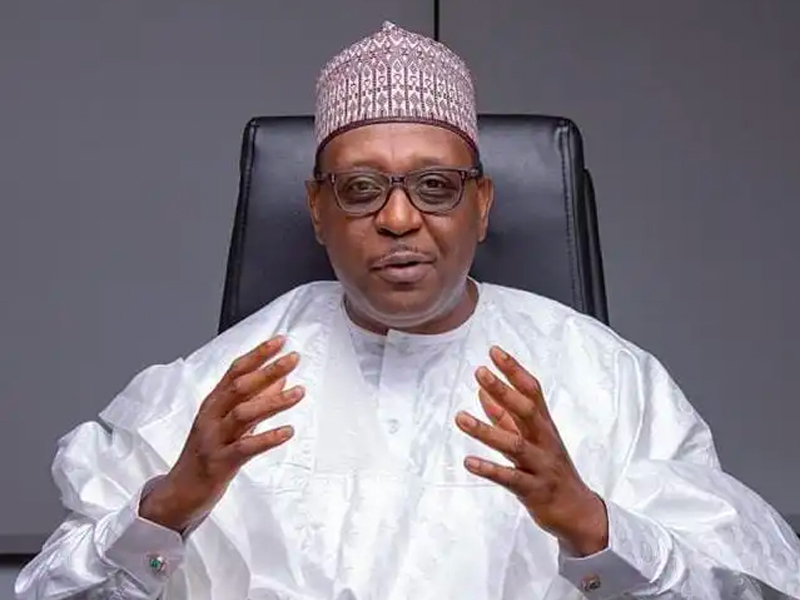The Federal Government on Tuesday reaffirmed its readiness to tackle Sickle Cell Disease (SCD) and other Non-Communicable Diseases through several policies and strategic action plans.
The Coordinating Minister of Health and Social Welfare, Prof. Ali Pate, said this at the inauguration of a project aimed at strengthening the management of the disease through increased adoption of hydroxyurea in Nigeria.
Pate, represented by Dr Nse Akpan, Director, Porthealth Service, Federal Ministry of Health and Social Welfare, said the project was geared towards assessing the level of utilisation of Hydroxyurea drug among healthcare providers.
“The Hydroxyurea is an innovative drug that has been used in the developed world to prevent sickle cell morbidity, mortality and has proven to be a game changer in the management and control of SCD.
“Studies have shown that hydroxyurea helps to reduce the frequency of acute chest syndrome (pneumonia), in children and adults.
“It also helps to reduce the frequency and number of painful crises and prevent the occurrence of stroke.
“It also reduces the need for blood transfusions, number of visit to the hospital and hospital admissions, prevent damage to vital organs such as spleen, kidneys, lungs and brain,” he said.
Pate said that the drug was now produced in the country by Bond Chemical Industries Limited, an indigenous pharmaceutical company based in Lagos State.
He said that the ministry, through this indigenous company, had made donations of hydroxyurea to Sickle Cell Centre of Excellence in the six geo political zones.
Pate also said that the Centre of Excellence for Sickle Cell Disease Research &Training (CESRTA), University of Abuja, was included and the feedback were worthy of note.
He said the issue of myth and poor utilisation of hydroxyurea among health providers was still evident.
According to him, the SCD management programme will help to demystify some of thecmyth associated with the drug use for effective management of SCD in Nigeria.
“It is our earnest believe that the programme will achieve its set goals and target with the unwavering support of the Federal Government towards improving the health and wellbeing of people living with SCD,” he said.
The Vice Chancellor, University of Abuja (UniAbuja), Prof. Abdul-Rasheed Na’Allah, said the five years grant would enable CESRTA to do more in the fight against the disease.
Na’Allah said that with the effort being put by the centre in research work, he was optimistic that one day there would be a permanent cure to the disease.
Prof. Obiageli Nnodu, Director, CESRTA, said that Nigeria had the highest prevalence of SCD in the world with an estimated 4.4 million patients.
Nnodu said that research findings over the years showed that majority of people in the Sub-saharan Africa were not receiving evidenced-based health such as new-born screening.
She said that there was also no health education, prophylaxis for infection, Transcranial Doppler (TCD) screening, Hydroxyurea Therapy (HUT) and blood transfusions when required.
According to her, HUT is recognised in national and international guidelines as a standard of care for patients with SCD with over 25 years of clinical evidence regarding the efficacy and safety of hydroxyurea for management of SCD.
She said the project would conduct the first large-scale implementation research study to assess the adoption of hydroxyurea in Nigeria using clinical sites.
Nnodu, however, said the primary objective of the programme was to evaluate the level of hydroxyurea adoption among healthcare providers using the task-sharing intervention.
She said Nigeria had a new-born screening project that was supported by American Society of Hematology.
Ndodu said that it was a consortium for new-born screening in seven countries with Nigeria as one of them.
The director said the new-born screening consortium in Nigeria was in FCT and Kaduna State, adding that FCT had screening centres in 24 Primary Health Centres.
“We have screened over 20,000 babies, we have identified 220 babies, and just about half of these babies are being care for by others are in the bush.
“Only 13 per cent of SCD patients are on hydroxyurea which is a disease modifying treatment, 54 per cent are taking blood which is not too safe.
“More babies with SCD survive when they are identified at birth than those identified in early childhood.
“When babies are identified through new-born screening, they should be enrolled into comprehensive care for proper follow up.
“Current standard requires that these babies be offered hydroxyurea treatment from nine months and not wait until they fall ill,” she said.
Ndodu, who said the project would help to provide treatment for 900 patients for five years, added that there was need for constant awareness in order to reduce the prevalence of SCD in Nigeria.
Dr Emmanuel Peprah, University of New York, Co-project Investigator, said that hydroxyurea was safe for use in Africa, adding that Nigeria was the only country in Africa that produced its own hydroxyurea.
Peprah said that by the end of the five year research project, they hoped to have administered hydroxyurea to over 30 per cent of patients with SCD.
He said the drug was efficient to patients not only in Nigeria, but in Sub-saharan Africa.
Miss Joanna Kelvin, a sickle cell warrior and a volunteer, said she had been on the drug and it had been very effective.
She called on the global world to proffer permanent cure for the disease that always try to define their lives as humans.
Source: News Agency of Nigeria (NAN)
